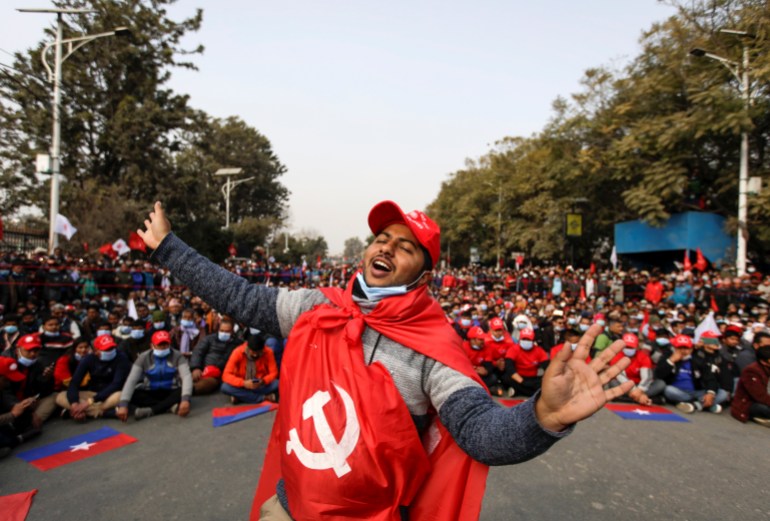Thousands in Nepal protest against dissolution of Parliament
Prime Minister KP Sharma Oli dismissed the legislature in December, accusing members of his own party of noncooperation.

Three former Nepali prime ministers joined thousands of demonstrators on Friday to protest against Prime Minister KP Sharma Oli’s abrupt move to dissolve Parliament and call snap elections.
Oli dismissed the legislature in December, accusing members of his own party – including the former rebels – of noncooperation, and called for new elections in April.
Keep reading
list of 4 itemsChinese delegation meets Nepal PM amid political crisis
Thousands protest in Nepal against PM dissolving Parliament
Nepal: Pro-monarchy protesters clash with police in Kathmandu
The move plunged Nepal into fresh political uncertainty after years of instability, short-lived governments and earthquakes that devastated the country in 2015.
A senior police official said an estimated 25,000 people had gathered to protest near Oli’s office and more marches were planned across the Himalayan nation, which lies between India and China.
Former Maoist commander and co-chair of the Nepal Communist Party (NCP) Pushpa Kamal Dahal, who led the 1996-2006 uprising, told demonstrators in Kathmandu that Oli was attempting to “derail the peace process”.
“The elected parliament must be reinstated,” he told the huge crowd, many waving red hammer and sickle flags.

Former Prime Ministers Dahal, who led a decade long Maoist resistance that ended in 2006, and Jhal Nath Khanal, were also at the rally.
All three former prime ministers are from Oli’s party but oppose the dissolution.
Oli’s government has also weathered accusations of corruption and criticism of its handling of the coronavirus pandemic.
But his decision to dissolve Parliament came after months of clashes with Dahal, who helped Oli come to power when their political parties merged in 2018.

The pair had previously clashed over their power-sharing agreement and a lack of consultation.
Oli became prime minister after his NCP won elections three years ago.
Following the parliament’s dissolution, two factions of the NCP have informally split and have described themselves as the legitimate faction and staked claims over the party’s election symbol and its name.
Legal experts said the hearing on Oli’s decision was expected to go on until February as more than 300 lawyers had registered their names to participate in the proceedings.